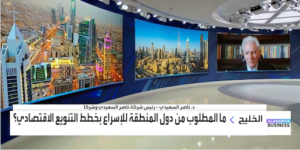(The below appeared on The National – 5th March, 2013 – click here to access the original article)
Small and medium enterprises lack access to finance, being clearly undercovered in the Middle East and North Africa region (8 per cent of bank loans) and miserably so in GCC countries (just 2 per cent of total loans).
In the UAE, with the few large corporations aggressively pursued and overserved by international financial players, SME clients appear to be one of the largest opportunities for the quick and easy growth of regional banking players.
New regulations, limiting lending concentration to government-related entities, will support the expansion of the lending business to SMEs. But much of it will be short-term and with high spreads, compared to European and global standards.
The relatively high minimum loan size required and its high “throughput time” are a barrier to the pent-up demand for finance by entrepreneurs.
Banks face relatively high default rates (in part due to the absence of centralised credit information and limited use of credit scoring in the UAE), the complexity of small loan management and the seizing of valuable collateral, which leads to a higher “loss given default”. So what is the true profitability and economic value added for the banking sector? Is the promise of SME banking hyped, “much ado about nothing”?
We believe not, but with a condition.
As frequently preached but not widely practised, SME banking is not “all just about lending”.
Some clear lessons can be gleaned from European experience over the past 15 years. While 15 years ago European SME lending was in fact “all about lending”, the contribution of the interest rate margin has been constantly declining, with competition leading to spread compression and increased cost of funding.
The economic value added has become negative and the negative contribution to banks’ earnings has accelerated with the global financial crisis since 2007.
Historically, SME financing has been dominated by commercial banks lending directly to their clients and leveraging their cheap retail deposit base. But the growing trend is “disintermediation”: SMEs are increasingly issuing debt through the capital markets, even considering small and cheap “products” such as the now popular “minibonds”.
GCC regional financial players should learn the lessons from European and US banks and develop other less plain vanilla lending products and more specific and value-added services to increase their commission margin.
Priority should be given to the development of leasing and factoring offerings, extension of cash management services to trade finance and to active asset/ liability and financial risk management, exploit insurance cross-selling opportunities and the creation of new advisory services, ranging from smart investment banking to holistic corporate advisory, including strategic/industrial and property advisory, evolving IT governance and digitalisation of offerings.
The development of some simple and sound investment banking/ capital markets capabilities by UAE regional banks could help in addressing the risks and the opportunities coming from the “disintermediation ahead”.
Already initiatives for an electronic SME equity stock market and web-based start-up and SME crowd-funding are being considered and built for market launch.
A cooperative partnership between such initiatives and banking players will be critical for the development of the SME sector and for the overall economy – and it will help banks to avoid taking the full lending-only route taken by other unlucky global players.
Claudio Scardovi is a managing director in AlixPartners Enterprise Improvement practice. Nasser Saidi is a former chief economist of Dubai International Financial Centre and the founder of Nasser Saidi & Associates.




